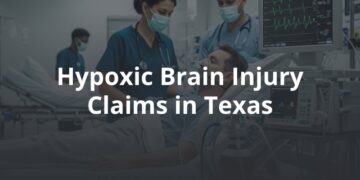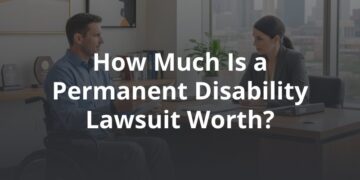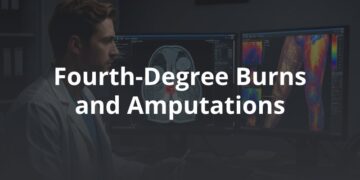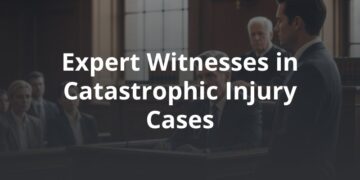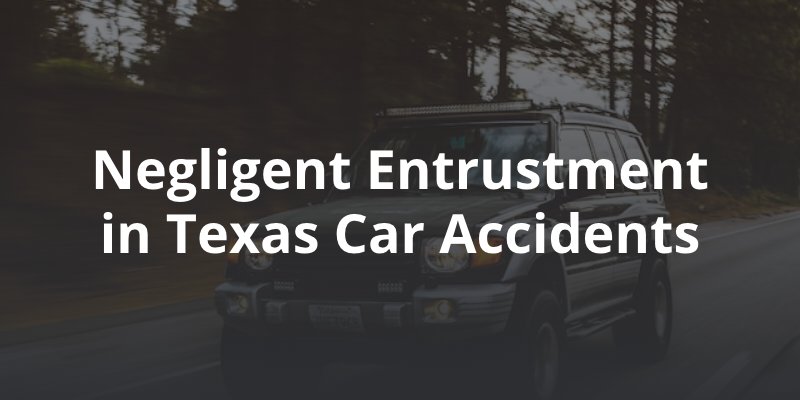
Motor vehicles are dangerous, and should be treated as such. They should not be lent or entrusted to someone incapable of handling the car with the care and prudence required. If you get hurt in a car accident caused by someone who should not have been entrusted with the vehicle, a negligent entrustment case could allow you to hold the right person responsible.
Negligent entrustment cases involve complex legal issues, but you don’t have to handle your claim alone. An experienced Austin car accident lawyer at FVF Law Firm can help you understand your rights and navigate your car accident case for the best possible results.
Who Pays for a Car Accident in Texas?
Before you dive into the legal theory of negligent entrustment in Texas, you must understand how Texas’s at-fault car accident law works. After a typical car crash, the at-fault driver or party pays for the victim’s medical costs and property repairs. The victim must prove that the named party (defendant) is responsible for causing the accident to recover financial compensation.
Sometimes, the driver at fault for causing a car accident in Texas is not the actual owner of the vehicle. They’re borrowing the car from someone else, such as a young driver using his or her parent’s motor vehicle. Depending on the circumstances, this could make the owner of the vehicle liable (financially responsible) instead of or in addition to the careless driver.
What Is Negligent Entrustment?
Negligent entrustment refers to an individual handing over control of a vehicle (or another instrument, such as a firearm) to another person while knowing that the recipient is likely to use the vehicle in a manner involving an unreasonable risk of harm to others.
To safely and correctly operate a motor vehicle, a driver must have adequate training and experience. The individual must be old enough, properly licensed to drive, and of sound mind and body. The driver also should not have a history of frequent reckless driving citations or at-fault auto accidents.
If there is reason to believe that a person is incapable of handling a car in a safe manner, the owner of the vehicle has a legal responsibility not to entrust the car to that person. Examples include an unlicensed, intoxicated or inexperienced driver, or someone with a history of reckless driving, accidents or DUIs.
Negligence describes the failure to act with proper care, or to act in a way that a “reasonably prudent” person would not have in the same or similar circumstances. If the owner of a vehicle in Texas entrusts the car to someone else when a reasonable person would not have, this is negligent entrustment. Under Texas’s tort laws, victims of this type of negligence have the right to file car accident claims against vehicle owners whose actions led to the collisions.
What Must Be Proven in a Negligent Entrustment Car Accident Claim?
Motor vehicle owners in Texas have a legal duty of care to keep their cars from falling into the wrong hands. This includes carefully evaluating a person’s age, competence and qualifications before allowing him or her to use the motor vehicle. This rule helps to keep the public safe by preventing foreseeable car accidents.
If negligent entrustment leads to a car crash in Texas, the injured victim must provide evidence to prove his or her claim against the owner of the vehicle. Negligent entrustment claims require the following elements of proof:
- Ownership: the defendant named in the car accident suit is the person who owned or had control over who drives the vehicle.
- Entrustment: the owner of the motor vehicle allowed another person to control or use the car.
- Incompetence: the person who was permitted to drive the car was unfit to operate the vehicle (e.g., an incompetent, reckless or unlicensed driver).
- Knowledge: the defendant knew or reasonably should have known that the driver was unfit at the time of entrustment.
- Negligence: the driver was negligent, such as driving under the influence, driving while distracted, speeding or breaking traffic laws.
- Causation: the unfit driver’s negligence directly resulted in a car accident and the victim’s injuries.
You or your car accident attorney must provide adequate evidence to prove a negligent entrustment claim. Evidence available may include proof that the driver was incompetent or unfit, police accident reports and citations issued, witness statements, photos and videos, and expert testimony.
How to Handle an Insurance Company
Negligent entrustment cases can be even more difficult to win than typical car accident claims in Texas. Insurance companies will jump at the chance to deny a claim filed by an injured party on the basis of negligent entrustment. The insurer may try to argue that the vehicle was not actually owned by its policyholder, for example, or that the driver was not known to pose a threat of harm to others.
When you are contacted by a car insurance company after your crash, be careful not to admit fault or give them a recorded statement about the event or your injuries. This can give the insurance company more to use against you. Don’t offer more information than they request, and don’t accept the very first settlement offer. Instead, contact an attorney near you for legal advice and assistance.

150+ years experience500+ 5 star reviews24/7 assistance
Top Personal Injury & Accident Lawyers
Call an Austin personal injury lawyer at FVF Law Firm – Injury & Wrongful Death Lawyers for a free consultation at (512) 910-7536.
How a Texas Car Accident Attorney Can Help With a Negligent Entrustment Case
If you get injured in a car accident in Texas and have reason to believe that the person driving the car should not have been entrusted with the vehicle by its owner, contact an Austin personal injury attorney at FVF Law Firm about a potential negligent entrustment claim. Our lawyers can use over 100 years of combined legal experience to guide you through this complex type of case.
Our experienced car accident lawyers can help you combat common arguments made by insurance carriers to defend themselves against negligent entrustment claims. Your lawyer can point out that actual vehicle ownership is not necessarily required under Texas law, for instance, and that a right of control is enough to impose liability. We can uncover evidence to prove the required elements of your claim, including proof that the driver was unfit.
If you get injured in a car accident, you can trust FVF Law to help you get medical care and property repairs, investigate the crash for signs of negligent entrustment, collect evidence to support your claim, and negotiate with insurance companies or bring your case to court for maximum compensation.
We understand how negligent entrustment cases work in Texas and can help you through this difficult time. Call (512) 640-2146 today for a no-cost case review.


